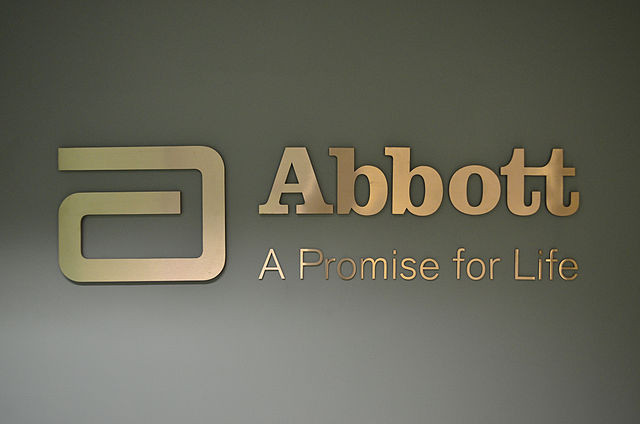A St. Louis jury on Friday delivered a landmark verdict against Abbott Laboratories, ordering the healthcare company to pay $495 million in damages over claims that its specialized formula for premature infants caused a severe bowel disease in a young girl. This case is the first of hundreds of similar lawsuits against the company, marking a significant moment in ongoing legal battles concerning the safety of infant formulas.
The lawsuit was brought by Margo Gill, an Illinois mother, on behalf of her three-year-old daughter, Robynn Davis, who developed necrotizing enterocolitis (NEC) after being fed Abbott's formula in a neonatal intensive care unit in 2021. NEC is a devastating disease that destroys bowel tissue and primarily affects premature infants. Despite surviving the disease, Robynn has suffered irreversible neurological damage and will require long-term care.
The jury awarded $95 million in compensatory damages and a staggering $400 million in punitive damages, reflecting the severity of the case and the jury's view of Abbott's conduct. Jack Garvey, an attorney representing the Gill family, emphasized the need for transparency from companies like Abbott. "Companies need to be honest about their products, about the good and the bad," Garvey said. "When there is a risk of using a baby formula for preterm infants, parents have a right to know what the problems are."
Abbott Laboratories, the maker of Similac, vehemently disagreed with the jury's decision and announced plans to pursue all avenues to have the verdict overturned. In a statement, Abbott spokesman Scott Stoffel maintained that there is no scientific evidence linking their preterm infant products to NEC and underscored the importance of such formulas in neonatal care. "Specialized formulas and fortifiers are among the only available options to feed premature infants," Stoffel said. "Verdicts like these, where the science and opinions of healthcare professionals are ignored, make it difficult to continue supplying these products."
The jury's decision was not unanimous but met the requirement of three-fourths agreement among the 12 jurors, a standard in Missouri civil cases. This verdict follows another significant case earlier this year, where Reckitt Benckiser, the maker of Enfamil formula, was ordered to pay $60 million in a similar lawsuit.
The broader context of these lawsuits reveals a mounting wave of litigation against major formula manufacturers. Nearly 1,000 lawsuits have been filed against Abbott and Reckitt Benckiser, centralized primarily in federal courts in Illinois, Missouri, and Pennsylvania. Plaintiffs argue that the companies failed to adequately warn that formula feeding increases the risk of NEC compared to breast milk or donor human milk.
Despite the legal challenges, Abbott and Reckitt Benckiser have denied any wrongdoing. They argue that specialized formulas are crucial for the survival of many premature infants who cannot be sustained on breast milk alone. Abbott's legal team contended during the trial that Robynn's injuries resulted from trauma at birth, not from the formula.
The implications of these lawsuits extend beyond the courtroom. The NEC Society, a patient-led non-profit organization, has voiced concerns over the impact of litigation on clinical decision-making. The society argues that feeding decisions should be made by medical professionals at the bedside, not dictated by court rulings.
The financial impact of these legal battles is also significant. Following the $60 million verdict against Reckitt Benckiser in March, the company's share price dropped by about 15% and has not fully recovered. The ongoing litigation against Abbott over the shutdown of its Sturgis, Michigan, plant and the recall of potentially contaminated formula in 2022 has only added to investor concerns.





